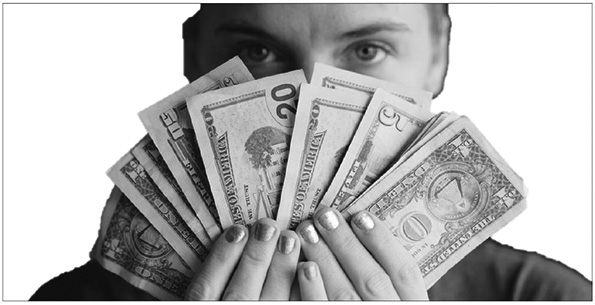
Like the famous saying “Let’s enjoy it while we can,” the phrase “Today we ‘FLEX’ed,” has been spreading like a trend among the new generation and has become a consumption trend. So what does it mean to FLEX? According to Naver’s Korean dictionary, FLEX means ‘Doing warm-up exercises.’ However, the meaning of FLEX in today’s society is different. It refers to the hot vocal rising and falling by a musician which can be interpreted as ‘showing off and boasting’. And the dynamic equivalent for ordinary consumers is interpreted as ‘consumption (of high-priced goods).’ For example, when you buy a very expensive item, you naturally brag to your friends, saying, ‘I ‘FLEX’ed it.’
So how did the word “FLEX” become a consumption trend? Just a few years ago, ‘Gaseongbi’, which means value for money, was an important priority for consumers. However, with the social phenomenon of “YOLO,” FLEX began to be popular in Korea in 2019, used by Korean rappers, meaning “show off wealth or valuables.” Buying and Showing off expensive merchandise through social network services (SNS), by working part-time jobs or saving pocket money, has captivated young people and become a trend especially for the MZ generation born between 1980 and 2000.
FLEX is similar but not identical to ‘Gassimbi’, which was one of the consumption trends predicted by Seoul National University’s Consumer Trend Analysis Center in 2018. It includes different points of satisfaction, which are buying, boasting, and gaining satisfaction from purchasing high-priced items. Lim Jae-eun, Sangmyung University Smart Information and Communication Class of 19, said, “I bought expensive clothes a few days ago, and I felt like I could forget my hardships while working part-time. And also it's fun to brag about it on Instagram.” In fact, ‘Job Korea’ and ‘Albamon’ surveyed the MZ generation on the consumption patterns, and found it to be typical of the MZ generation’s consumption patterns. The options were ranked first, second, and third, with consumption by Gaseongbi(51.2%), Gassimbi(37.3%), and FLEX(11.6%). 55 Percent of respondents who preferred FLEX consumption cited “Current enjoyment/self-satisfaction is important” as the reason why they preferred it. However, if you do FLEX every day and spend all your money, earned through part-time jobs and pocket money, to show off valuables, it is natural that your money will be soon gone.
Then, is there a better way where both high-priced and low-priced products can be consumed at the same time? Experts refer to this as ‘Ambisumerism’. According to the dictionary it is a new word combining Ambivalent and Consumer. It refers to a two-sided approach to consumption where the consumer distinguishes between what is important and what is not. If an item is important or valuable the consumer spends without hesitation but boldly saves on items not valuable to them. For example, clothes can be a contradictory form of consumption where consumers buy inexpensive items such as sale products but boldly spend on meals in expensive restaurants. The Korea Rural Economic Institute explained the characteristics of an Ambisumer, saying, “Ambisumer usually seeks low-cost consumption, but is willing to open his mouth to services that ease his efforts on special days or on special occasions. He also takes care of his health and happiness by eating healthy salads and maratang, which is a popular stew in Korea, in the evening.” It became popular in the MZ generation, who wanted to gain satisfaction by boasting through FLEX, but also wanted to be frugal through ‘Gaseongbi.
Sociologists say the emergence of such ‘Ambisumerism’ is due to social recession. About that, Yoo Hyun-jung, a consumer studies professor at Chungbuk National University(CBNU), said, “Human beings have a desire to respect themselves, so they want to show that they are superior to others through show-off consumption and appeal to what kind of person they are. However, human consumption inevitably comes with the scarcity of resources. If you have enough resources, you can easily practice show-off consumption for self-respect, but in times of poor economic conditions, adjustments are inevitably needed. So you may have to buy from a thrift shop that offers cost-effectiveness and value for money. However, it’s only human to try to maximize your satisfaction by overcoming the atrophy that comes from FLEXing and meeting the needs of the higher levels, which is ‘value consuming’, as much as possible.
She added, “Current consumers, who live in a consume society, are giving and given lots of meaning to consumption. Depending on what they own and what brand they own, they may be able to establish their status, characteristics, and style. Therefore, it is not good to judge individual consumption style negatively.”
By Kwon Ji-ye
whodrk@cbnu.ac.kr


 All
All Society & Global
Society & Global






 Kwon Ji-ye
Kwon Ji-ye











